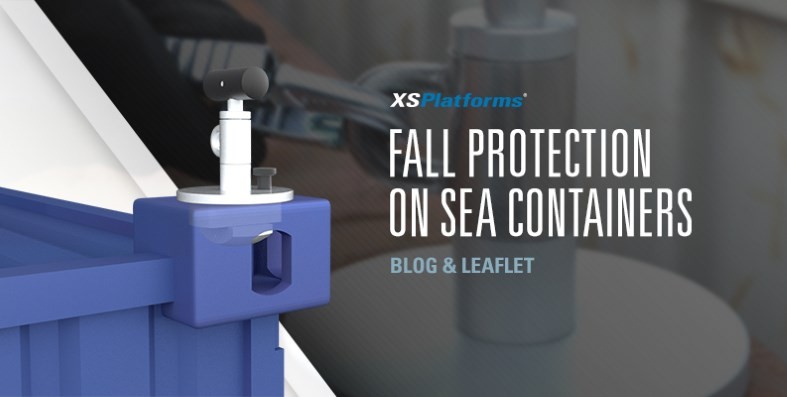
During a container’s journey various accidents can happen. While stacking containers employees will sometimes have to access the top of a stack of containers. Or employees need to be on top of a container for inspection, maintenance or repairs. These situations pose fall hazards as no integrated fall protection anchorage is available.
Whether in a container terminal or on board a ship, the height of stacked containers varies. But no matter the height, a fall from a container can cause serious injury or worse. For more information about fall protection on a marine environment, check this page.
No integrated safety measures
Shipping containers have no built in attachment points for workers to connect their lanyard and harness to. Not to mention the surface of a container isn’t flat, giving rise to additional fall hazards caused by slipping on water or ice.
Installing permanent anchor points on top of containers is not a solution to providing safety, as companies never know which container needs to be on top. Furthermore installing anchor points on all containers is very costly, and not all containers may be owned. How then can we ensure safety while on top of a container?
Temporary safety solutions
A temporary anchor point is the best solution to provide a safe anchorage point for employees on top of a container. XSPlatforms developed a special Twist anchor, suited for use on top of shipping containers. This temporary anchorage point is easily installed in the top hole of the steel corner castings of a container. As a freestanding single anchor point, the Twist anchor allows a single user to safely access the top of a container.
When more anchor points are installed, a temporary lifeline can be spanned in between the anchors to provide the user with more freedom of movement. Thus allowing for safe travel along a greater length. The addition of a temporary lifeline can also provide more workers access to heights. However, as every situation differs we urge you to consult a specialist before applying this solution. Enough fall clearance needs to be available before a temporary lifeline can be employed.

